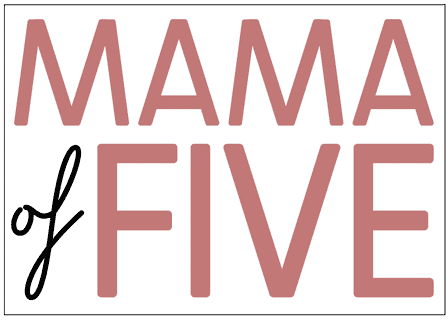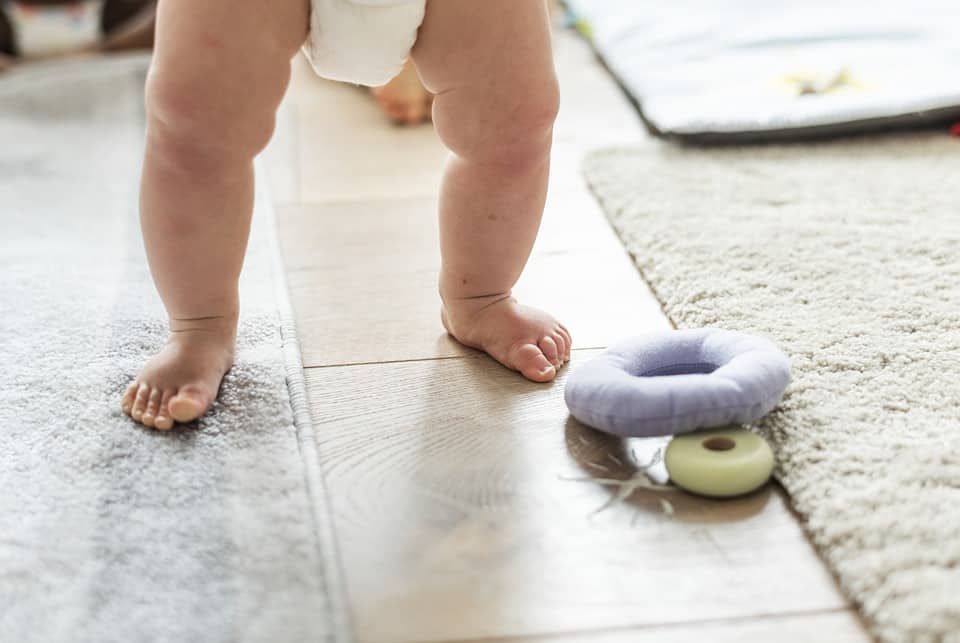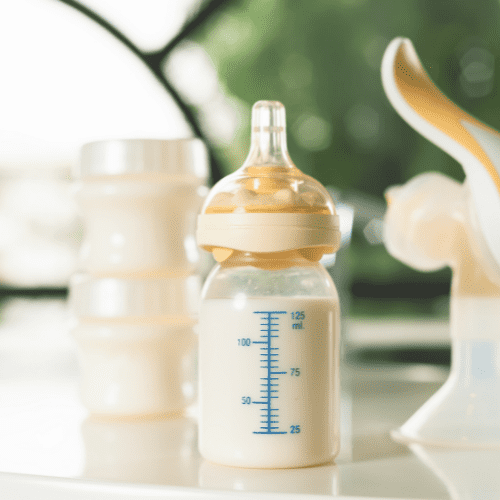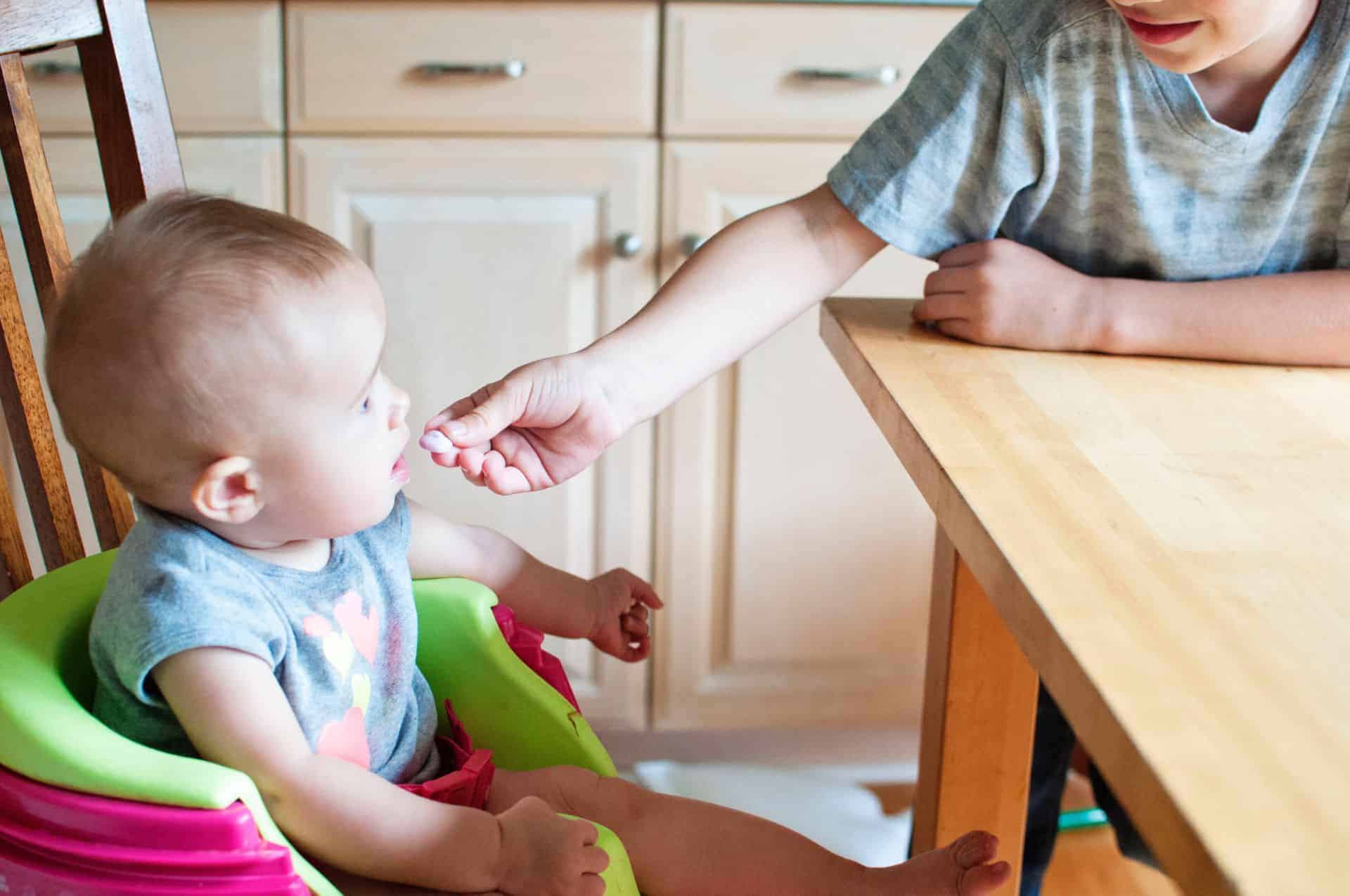As a new mom, we spend a lot of time trying to figure out whether our babies are actually having enough food.
Then, we have the other side of us moms who will wonder whether we’re overfeeding our baby’s!
Is it even possible?
I hear so many questions in regards to overfeeding baby’s, especially when it comes to baby’s spitting up. Mom’s will think that they’re overfeeding their baby.
The truth is, overfeeding a breastfed baby is pretty much impossible. You also don’t need to be worried if your baby is growing and gaining weight and your pediatrician isn’t concerned.
Babies are incredible and know that when they are hungry, they should eat and when they’re fully, they simply stop.

As an Amazon Associate I earn from qualifying purchases. The links below may be affiliate links. Please read my disclosure policy for more information.
So, why isn’t it possible to overfeed a breastfed baby?
Your baby will change their sucking patterns when they breastfeed. Once your baby has fallen asleep, they are more than likely just sucking instead of swallowing milk.
I have breastfed all 5 of my children, and I noticed that when they’d fall asleep during a feed, and I’d have a let-down, they would unlatch.
This goes to show that they knew that they’d had enough – even when they were asleep!
Related: The Best Pacifiers for Breastfed Babies 2020
A baby has to use so much energy to breastfeed. In fact, they use 40 different muscles in their face to feed. If your baby feels as if they don’t want or need to breastfeed, then they won’t.
This means, if they don’t need entertainment due to anxiety or boredom, nourishment, extra nourishment for fighting an illness, hydration, pain relief, hydration or comfort, then they won’t latch and will refuse the feed.
Your breastfed baby will grow rapidly in the first 3 months compared to formula fed babies. Although, once they hit the end of the 3rd month, your breastfed baby’s growth will slow down.
Related: Best Bassinet for Breastfeeding

So, you can now probably understand that the statement of ‘overfeeding’ breastfed babies is wrong. Especially when formula fed babies growth is rapid between the 3rd and 12th month instead of the other way around.
Your baby will breastfeed for many reasons, including pain relief, hunger, entertainment, thirst, illness fighting, comfort, illness protection and loads more!
It is a biological normal for your baby to breastfeed for many other reasons rather than just hunger. Most of the time, it will be to do with comfort.
It isn’t logical at all, from a biological perspective, for your breastfed child to have a rapid weight gain/growth or obesity.
Related: Is my baby getting enough Breast Milk?
What leads to overfeeding?
As I’ve mentioned, it is very rare for you to overfeed a breastfed baby. It’s easier to see and obsess over a bottle if your baby can see it, and that is why it is more common for bottle-fed babies to overfeed instead.
It is also easier for a bottle-fed baby to overfeed because it doesn’t take as much effort as a breastfed baby.
If you’re worried about the fact you think you might be overfeeding your baby, then you might want to know how you can tell.
If your baby spits up, it might not be a case of overfeeding. Spitting up is mainly a sign of reflux or a reaction, but also if you keep placing the bottle in their mouth once they’ve turned it away.
Weight is definitely not something you should look out for if you think you’re overfeeding your little one. It doesn’t show much.

Related: Do I have low milk supply?
If you are concerned, go and seek advice from your pediatrician and they will then take a look at your baby’s development, length and weight.
Your baby will be doing fine if all of this work out to be at the correct pace.
Always respect your baby’s ques. Then you will have no issues with overfeeding and you should try not to worry so much. Baby will let you know when they’ve had enough or when they want more.
When you think you might have overfed your baby, but what might be going on instead…
Related: My Success on the Keto diet while Breastfeeding
If you notice that your baby has green frothy poos, your breast milk goes crazy when you have a let-down or your baby seems to be gaining weight like no tomorrow, there might be a couple of solutions.
Take your baby off the breast if you feel that you’re having a letdown. They might get a little bit upset, because they want more, but you should then hand express. You should do this until you see that the flow has calmed down.
I suggest you either expressing into a hand towel or bowl.
Try block feeding. You should only breastfeed from one breast until it feels almost empty. You should then switch onto your other breast.
Your other breast will gradually fill up in the meantime so you should just massage and hand express or use your electric pump to make you feel more comfortable.

Related: Super Foods for your boobs: FOODS THAT WILL INCREASE BREAST MILK SUPPLY!
It might take a little while for your breasts to get used to this change, but it will definitely help.
Either breastfeed flat on your back or in a laid-back breastfeeding position because gravity can help with the flow. The issue will eventually stop as your baby grows and they can then handle more milk.
What are the effects of overfeeding?
Even though overfeeding a breastfed baby is uncommon, it is still possible. You’ll want to know what to effects of an overfed baby is. So, here is a list:
• Abdominal Distention: This is when the stomach balloons outward which then puts pressure on the organs and skin.
• Reflux: Your baby only has a small stomach, and that means that it can only hold so much. So, when it exceeds that amount, it will come back up.
• Increase of hydrochloric acid in the stomach: This helps your baby to breakdown their milk. If they have too much milk, the acid in the stomach will also increase, which causes irritation.
• Colic: This is an overloading of the digestive system. Either with the amount of food that is being intaken, gas or diet.
Related: Hands Down The Best Online Breastfeeding Class Ever
Knowing when your baby is full
You need to learn how to reach your baby’s cues. Once you see how your baby responds will show you what you need to do next.

If your baby is full, they might:
• Arch their back
• Push the bottle away
• Extend and relax their fingers, legs and arms
• Turn their head away from the bottle or breast
• Decrease or stop sucking
• Spit the milk or formula out
• Begin to fall asleep
• Seem disinterested during a feed
• Squirm or fuss
If you’re worried about your breastfed baby’s weight gain
Related: There is Blood In my Breastmilk. Should I be worried?
There are many things that can cause your baby to gain weight faster. Such as:
• Rarely, but could be related are health problems. This could include endocrine disorders, congestive heart failure and/or renal anomalies. It is even more important to continue your breastfeeding if your baby does have a health condition.
• Genetics. Simply remembering if your other children gained weight quicker than other infants or if you’re larger in size. Even if your other family members are bigger.
• Overabundant supply can mean that there is more of a rapid weight gain but an oversupply shouldn’t be a concern if it isn’t causing any issues for baby or mom.
Basically, the best thing you can ever do for your baby is to feed them. You’re the mom and you should provide for your little one.
You’ll know when something isn’t right and then you should go to the pediatrician for advice, or if you’re worried, go anyway!






